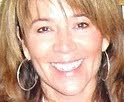 We’re all human.
We’re all human.We all make mistakes.
While sitting here writing this article, I can recall many of the mistakes I’ve made in my lifetime.
More importantly, I also remember how I felt.
My first recollection of making mistakes involved the dinner table. I remember knocking over tea glasses or breaking plates.
As I grew, my mishaps became more expensive. The world of work set me up for many missteps. Early in my career I fried a copy machine using the wrong kind of transparency slides. Cost: $600.
Not too long ago I really outdid myself. I decided to hang a window ornament above a window. I picked a place on the frame for the nail to go and then began to hammer away. I’m sure you can see where this story is going. Yes, after about three bangs, the full length glass pane window shattered. That little mistake cost me one big mess and $350.
Not all mistakes have a monetary value tied to them, but most have some consequences. I have many memories of messing up at work—reporting inaccurate data or releasing information peppered with typos and mistakes. Mistakes can humiliate and embarrass us, if we let them.
Teaching our children how to deal with accidents and mistakes is important.
Many children are afraid of making mistakes. They tie mistake-making with being bad. I can see where this idea comes from because even in the world of work, when I made a mistake, I mostly felt ashamed and yes, like a bad child who needed to be punished.
As I blundered through my young adult life I’m not sure why I didn’t realize every other person walking on the planet had made mistakes too.
When talking to our children about this very topic maybe we should take a page from motivational speaker Zig Ziglar. "A big shot is just a little shot that kept shooting."
You have a long list of famous quotations you could pull out like: “There is no point crying over spilled milk.” Or, “Experience is the name everyone gives to their mistakes.” Or what about a quotation attributed to Albert Einstein: “Anyone who had never made a mistake has never tried anything new.”
Something else to teach our children…after a mistake is made it is important to fess up to it. Model this behavior. It’s important to take responsibility for what we have done whether it be an accident or not. Teaching accountability will help your children better navigate their humanness.
I have mentioned before the story of Randy Pausch, the late computer science professor who wrote a book titled: The Last Lecture. If you haven’t already checked out this book, it is on my list of recommended reads.
At one point in his story, Randy told readers to: “Saddle up and ride.” That’s what we can tell our children too. After the milk is spilled, then there really is no other pertinent message. After a mistake is made, our children need to understand that we can find solutions to fix our problems. Truth: You can’t change what has already happened. But what you can do is learn from what has happened and make better choices moving forward.
As the story goes, Thomas Edison made several thousand attempts before he found success building his first light bulb. Later Edison reportedly said: “I have not failed. I’ve discovered ten thousand ways that don’t work.” Helping our children understand that making mistakes is more about learning how to improve ourselves and our lives is a valuable, valuable lesson to teach.
Allyn Evans
Email me!
www.thealertparent.com






